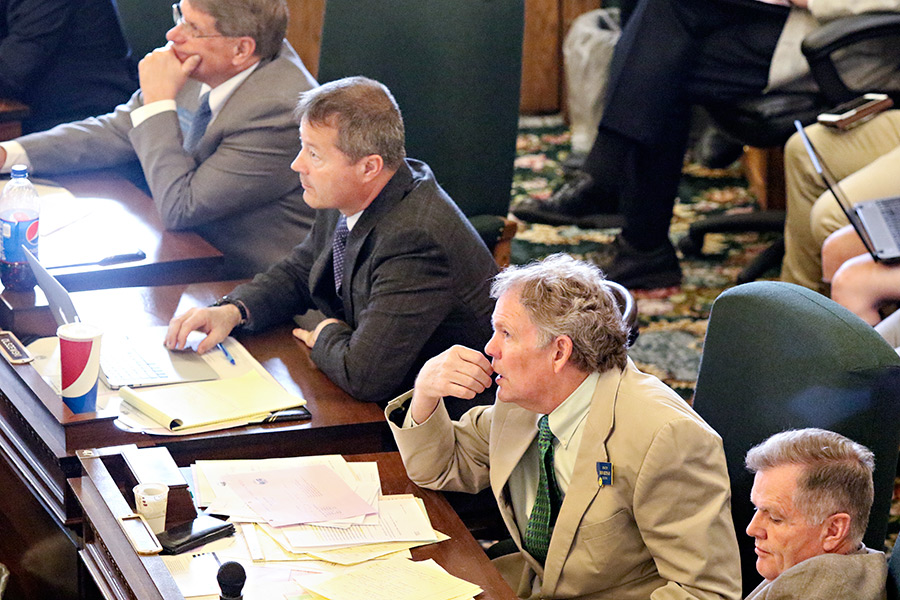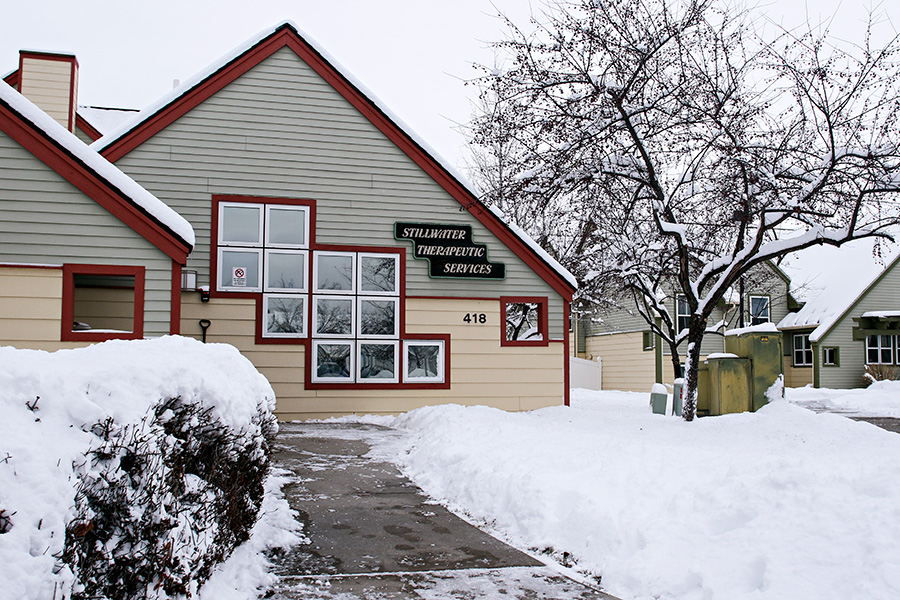Statewide Behavioral Health Commission Recommends Approval of Programs to Localize Mental Health Services
Two programs approved by the commission would allow counties to perform court-ordered mental fitness evaluations and would fund local residential treatment facilities
By Denali Sagner
The statewide Behavioral Health System for Future Generations Commission on Friday approved recommendation of two programs that would fund local behavioral health infrastructure in order to limit systemic bottlenecks and deliver care throughout the state.
If implemented, the first of two recommended programs would provide 24-month pilot grants to counties to finance court-ordered mental fitness evaluations, as well as associated stabilization services. The second program would provide one-time grants to congregate residential behavioral health providers who primarily serve individuals with serious mental health or developmental disability diagnoses. The programs will be added to a report that will be provided to Gov. Greg Gianforte’s administration in July 2024 that will theoretically serve as the framework for a major overhaul of the state’s widely criticized behavioral health system.
The Behavioral Health System for Future Generations Commission is a product of House Bill 872, legislation passed during the 2023 Montana Legislature that allocated $300 million for the reimagination and reconstruction of mental and behavioral health services in Montana.
At the commission’s third meeting on Friday, which took place at the University of Montana in Missoula, representatives from the Montana Department of Public Health and Human Services (DPHHS), behavioral health nonprofits and tribal organizations offered insight into the state’s convoluted crisis management system, which includes law enforcement, healthcare systems and public health organizations.
“Today is crisis day,” Sen. Bob Keenan, R-Bigfork, the chair of the commission, said as he opened the Friday meeting.
In a presentation on the proposal for court-ordered mental fitness evaluations, DPHHS Chief Legal Counsel Chad Parker described an overburdened and underfunded statewide system that is tasked with stabilizing and evaluating all Montanans who are required by the court to sit for mental fitness exams.
“It’s kind of a feedback loop,” Parker said, describing “bottlenecks” at multiple points throughout the process.
Currently, when the court orders a forensic fitness evaluation for a defendant to determine whether or not they are fit to stand trial, the vast majority of such individuals are forced to travel to the Montana State Hospital Forensic Mental Health Facility (FMHF) in Warm Springs. In addition to long travel times, a lack of beds and behavioral health professionals at FMHF has led to a considerable backlog of individuals waiting for stabilization treatment and evaluations. There were approximately 67 Montanans waiting for admittance into FMHF as of Oct. 11, according to a report prepared by DPHHS. Four of the 67 individuals on the FMHF waitlist are from Flathead County.
To address the state hospital bottleneck, the program would offer 24-month grants to Montana counties in order to bring the mental fitness evaluation process to local municipalities, rather than requiring individuals travel to Warm Springs. The program would allow counties to contract with both local providers and telehealth providers who could complete the evaluations.

During the meeting, commission members voiced support for the initiative and raised questions about where funding would be directed and how the program would continue after the 24-month pilot period.
Sen. Ellie Boldman, D-Missoula, a member of the commission, said that it seemed “a little vague on the criteria of who would receive the funds,” and urged the commission to give DPHHS greater authority in handing out grants.
“I would just love for this commission to entertain allowing the Department of Public Health and Human Services to have grater latitude,” Boldman said.
Others raised concerns that the program would work well in Montana’s urban centers, but would leave behind rural areas, which already struggle with limited health infrastructure.
DPHHS Director Charlie Brereton said that the department is considering a “hub and spoke model” where “smaller counties with less demand, if you will, could leverage counties that receive the funding.”
Following a theme brought up by stakeholders repeatedly throughout the meeting, Rep. Dave Fern, D-Whitefish, questioned how the commission would make the program sustainable beyond the pilot period. Fern said that it is imperative the commission members “ensure our stakeholders that the sky won’t fall down after 24 months” and that the commission has a “sustainable funding program.”
Keenan said that the commission’s approval of the program would not solidify its framework, but would allow the body to keep working on the idea with DPHHS, where it could work on issues of sustainability and access.
The second program recommended by the commission would give grants to providers who offer residential adult mental health, developmental disabilities and children’s mental health services. Access to residential behavioral health services in Montana has dwindled in recent years due to staffing issues and low Medicaid provider reimbursement rates.

According to DPHHS, the annual number of Medicaid-covered individuals living in adult mental health group homes decreased 8% from 2021 to 2023, in part due to low provider reimbursement rates.
The Montana Legislature this year passed a budget that included a major increase in Medicaid provider rates, a move that behavioral health advocates hope will alleviate care shortages. However, according to a report from DPHHS, providers have expressed that investments will be needed to hire and train staff and rebuild capacity until the increased reimbursement rates begin sustaining their programs.
If implemented, the program would offer grants to repair and upgrade existing residential programs and support the establishment of new programs.
The program received support from a number of stakeholders, including representatives from the National Alliance on Mental Illness Montana chapter, the
Center for Children, Families and Workforce Development at the University of Montana, the Montana Consortium for Urban Indian Health and Shodair Children’s Hospital in Helena.
“I couldn’t be happier. I am just thrilled with this recommendation,” Mary Windecker, executive director of the Behavioral Health Alliance of Montana, said. “We are very, very happy with reopening these facilities.”
The programs will be part of a larger set of recommendations sent to Gianforte for implementation next summer.